Rehab & Addiction Treatment Resources in NY: From The Big Apple to Massena
Local Resources & Information to Start Your Recovery Journey

Help Is Available for Those Struggling With Addiction in the State of New York
Help is available for anyone grappling with drug or alcohol use in the Empire State. While the journey of recovery may feel daunting, it’s important to remember that you are not alone. Across the state, there are thousands of individuals who have overcome addiction and found their path to sobriety and happiness.
The city’s vibrant and dynamic environments provide a wealth of resources and opportunities for individuals seeking to break free from the grips of addiction.[1] From bustling urban centers to tranquil natural landscapes, the state offers a diverse array of settings conducive to healing and transformation. The Big Apple is home to renowned medical institutions, addiction treatment centers, and diverse support networks, ensuring that those in need have access to high-quality care and comprehensive services throughout their recovery journey.

How Do You Know If You Need Professional Help?
Seeking help for drug or alcohol issues can feel intimidating, but recognizing the need for professional assistance is a sign of courage and strength. It might stem from struggles to control your substance usage, engagement in risky behaviors, or the onset of withdrawal symptoms. Changes in mood, experiencing social withdrawal, or changes in your physical health can all signal the necessity for intervention.
Whether it’s initiating an honest conversation with a loved one or scheduling a consultation with a healthcare provider, the choice to seek help marks the beginning of your recovery journey. By acknowledging the presence of addiction and actively pursuing support you are taking a positive step into a healthier, brighter future.

How and Who Can I Ask For Help?
When it comes to seeking help for addiction, there are several avenues and individuals you can turn to for support. Trusted loved ones, such as family and friends, can offer their understanding and encouragement. Opening up to them about your struggles can help alleviate feelings of isolation and provide a strong support network to lean on.
Seeking guidance from healthcare professionals can also be essential in addressing addiction issues. Your primary care physician can offer medical advice, perform assessments, and provide referrals to specialized addiction treatment programs or professionals. Additionally, licensed therapists, psychologists, and psychiatrists specializing in addiction treatment can offer individualized guidance sessions to address both the current struggle and any underlying issues contributing to substance abuse.
Additionally, local community organizations, religious institutions, or nonprofit agencies may offer addiction support services, counseling, or educational programs. These resources provide additional avenues for seeking help and connecting with others on the journey to recovery. National or local helplines and hotlines staffed by trained professionals are also available to offer immediate support, guidance, and resources for those struggling with addiction.
Types of Addiction Treatment in The Empire State
People seeking addiction treatment in New York State have access to a variety of comprehensive care options tailored to their specific needs:[2]

How to Choose the Right Drug Rehab Center for You or A Loved One
Choosing the right drug rehab center in The Big Apple is critical for your care. Think about your specific treatment needs, including the severity of your addiction and any co-occurring mental health disorders, and explore what treatments the facility offers. Additionally, verifying your insurance coverage ahead of time can help minimize financial burden and maximize access to treatment services.
Considering the proximity of the rehab center to your home and community is also important for facilitating the logistics of the admissions process. Being close to home enables easier family involvement and participation in therapy sessions, which can enhance the effectiveness of your overall treatment.
Furthermore, evaluating the treatment philosophy of the rehab center is important. Ensuring alignment with your needs, such as offering evidence-based practices or holistic therapies, can greatly impact their engagement and progress in recovery. Additionally, thinking about the amenities and services provided by the rehab center, such as accommodations, recreational activities, and aftercare planning, can contribute to creating a supportive environment conducive to cultivating long-term sobriety.
Discover Treatment Guides Close To Home
Local Continuing Recovery Care & Sober Living Programs
The recovery journey is an ongoing process that requires continual care and support. Being able to access ongoing services is a vital part of any treatment plan, as they help bridge the gap between the structured environment of residential treatment and the challenges of returning to everyday life.
In the City That Never Sleeps, alumni programs serve as a cornerstone in maintaining connections and engagement within the local recovery community. These programs offer opportunities for ongoing support, participation in support groups, and access to resources, fostering a sense of belonging and accountability. Alumni engagement is a powerful tool for reinforcing sobriety goals and promoting long-term success.
New York residents also have access to a variety of sober living options tailored to their needs and preferences as they transition back to daily life. Sober living homes, including Oxford Houses and premium sober living residences, provide varying levels of structure and support, offering a safe and supportive environment for continued recovery.[3] These options offer individuals in all parts of the state, from NYC to the Adirondack mountains, the opportunity to cultivate new habits and routines while surrounded by a community dedicated to maintaining sobriety.
Contact Admissions Today

Emergency Services for Addiction in The Empire State
Access to emergency resources can be crucial during a crisis. Many local hospitals operate 24/7, offering emergency care and facilitating connections to nearby treatment facilities. Additionally, region-specific hotlines serve as valuable resources for those seeking more immediate assistance.
In the event of a suspected overdose or substance-related emergency, please dial 911 or proceed to the nearest emergency room for immediate help.
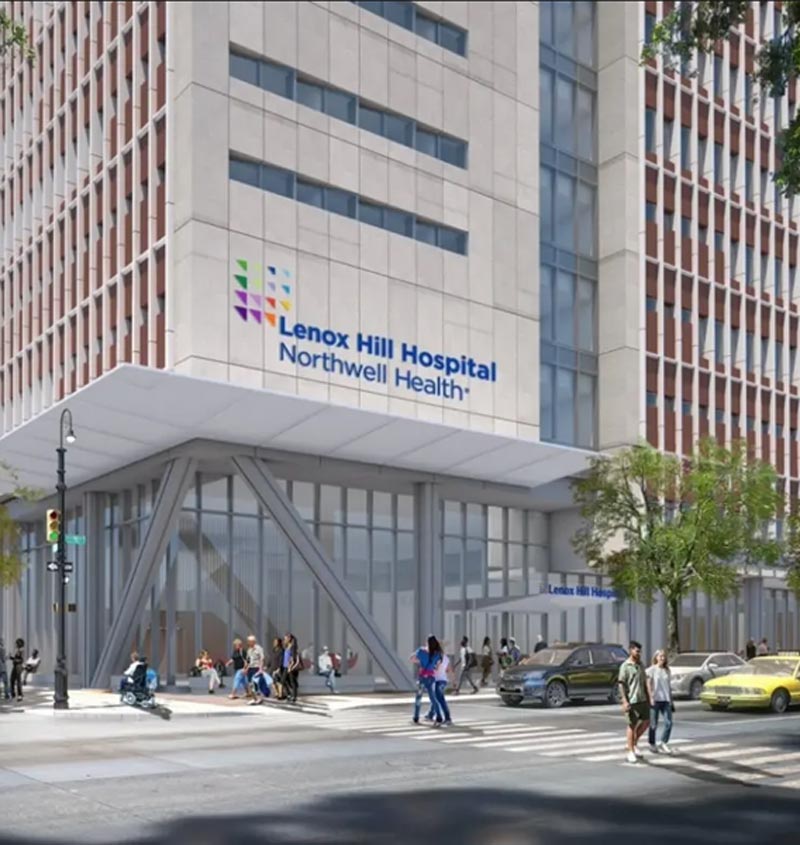
Ronald O. Perelman Center for Emergency Services
570 First Avenue, New York, NY 10016
Open 24 Hours
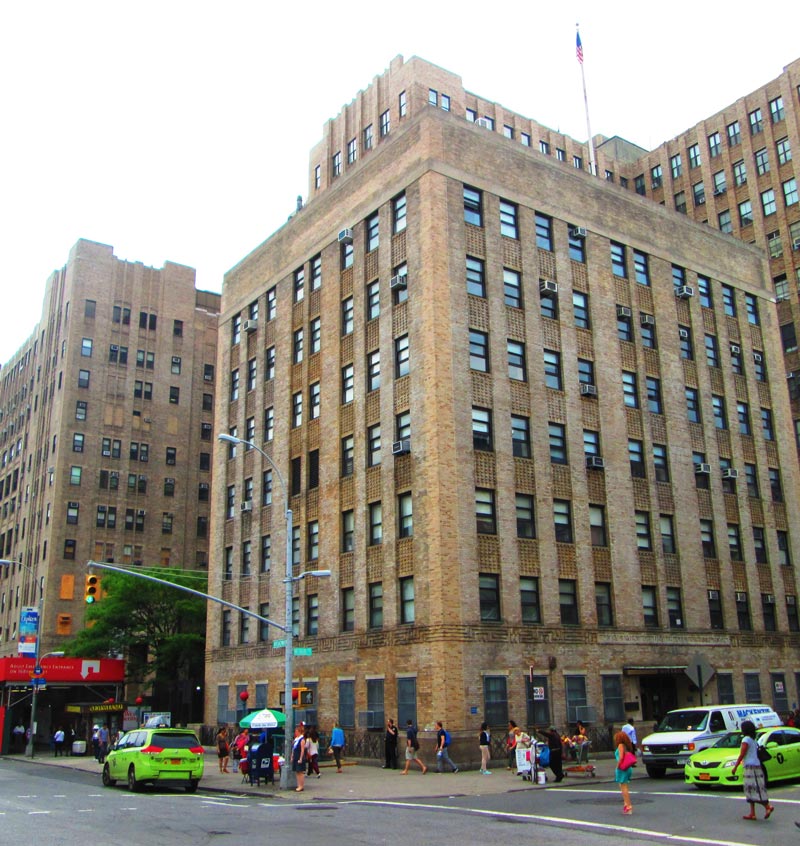
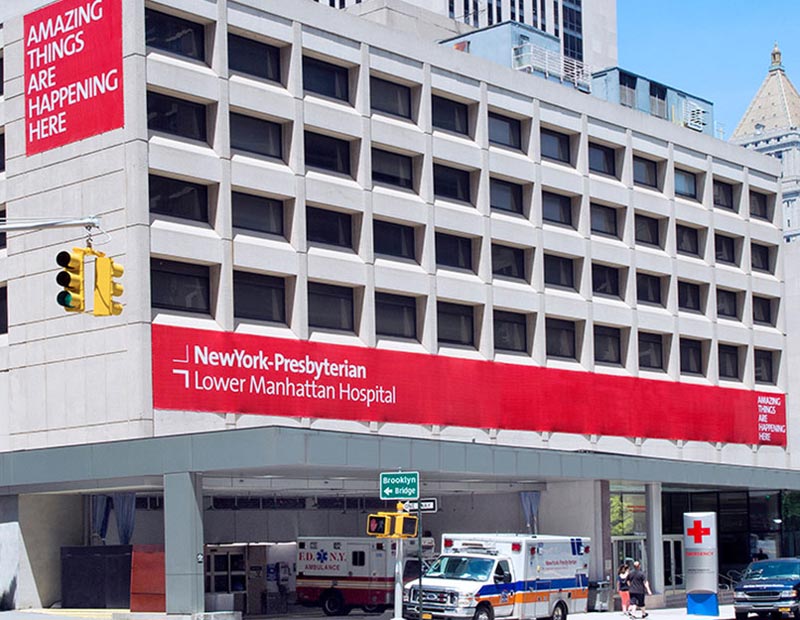
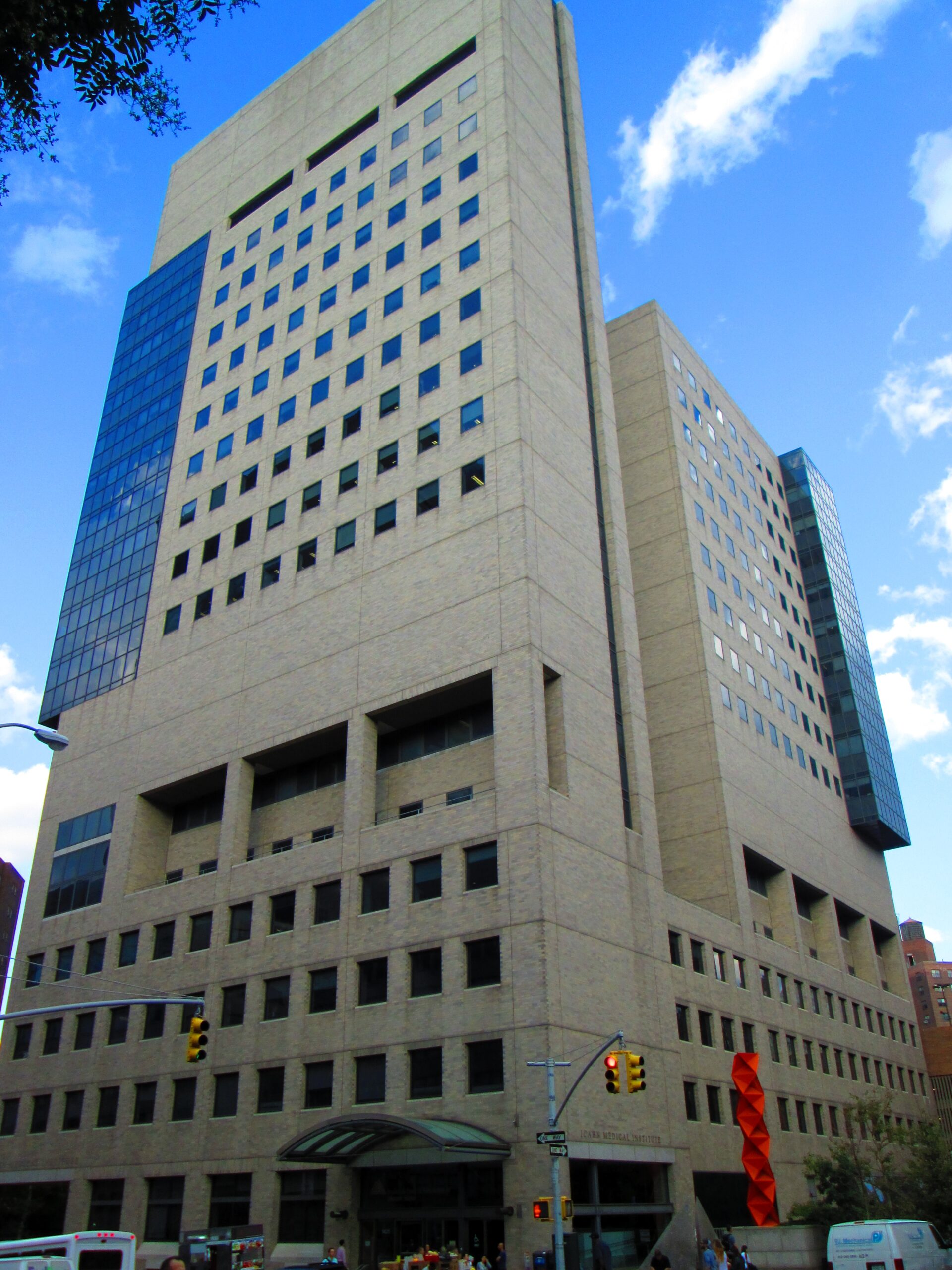

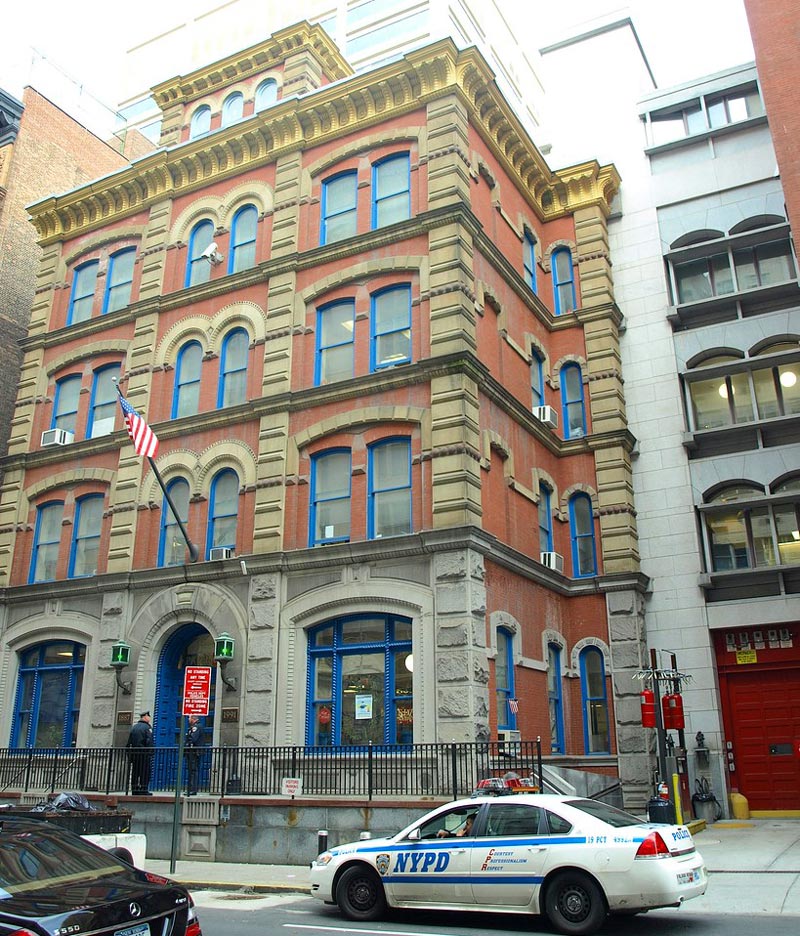
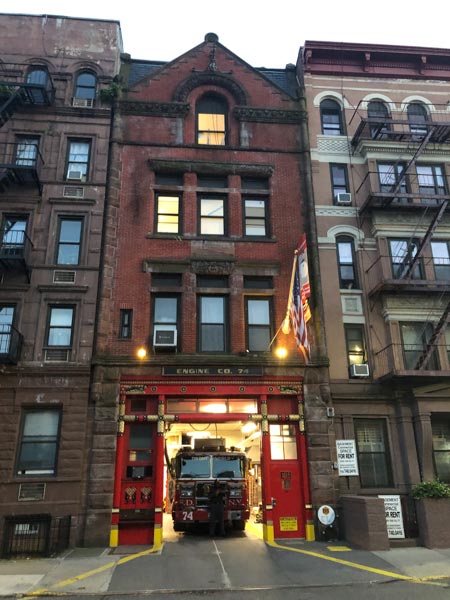
Nassau University Medical Center
2201 Hempstead Turnpike East Meadow, NY 11554
Open 24 Hours
Community Resources for Mental Health & Addiction
- 211 New York: Dial 211 or visit their website to connect to a resource specialist and a list of current substance use treatment providers
- Call or text 988 to access the new National Suicide and Crisis Lifeline in New York
- New York State Office of Addiction Services and Supports
- Find a pharmacy that distributes Naloxone here
- Friends of Recovery – New York: offers a variety of non-clinical support and education to individuals in recovery

Local Stats You Need To Know
Recent data from the New York State Office of Alcoholism and Substance Abuse Services (OASAS) sheds light on the significant impact of substance use disorders across the state: approximately 2.8 million New Yorkers aged 12 years and older reported having a substance use disorder in the past year, with provisional data showing that 6,358 New York State residents died from a drug overdose, while 2,003 died from alcohol-related causes.[4]
According to OASAS estimates from the past decade-plus, around twelve percent of state residents aged 12 and older experience a substance use disorder annually.[5] Statewide, over 1.9 million residents—comprising 1.77 million adults and 156,000 youth ages 12-17—are affected by substance abuse problems.
Start Your Recovery Today
It takes courage to ask for help. Partner with Ascendant and start the healing process from addiction today.
How to Pay for Addiction Treatment
Navigating the financial aspects of addiction treatment can feel overwhelming, but there are resources and options available to help you access the care you need:
-
Insurance coverage:
Many individuals in the city have health insurance that may cover some or all of the costs associated with addiction treatment. Understanding your insurance benefits, including whether the treatment facility you’re considering is in-network or out-of-network, is crucial. In-network facilities typically have negotiated rates with insurance companies, resulting in lower out-of-pocket costs for policyholders. Out-of-network facilities may still be covered by insurance but at a higher cost to the individual.
-
Medicaid and Medicare:
Those who qualify for Medicaid or Medicare may be eligible for addiction treatment services coverage. These government-sponsored programs provide health insurance to low-income individuals and seniors and may cover various levels of addiction treatment, including detoxification, residential treatment, outpatient services, and medication-assisted treatment.
-
Local non-profit organizations:
Several non-profit organizations in the Big Apple offer financial assistance or scholarships to individuals seeking addiction treatment. These organizations may provide funding for treatment programs, medication, therapy sessions, or other related expenses.
-
Payment plans:
Many addiction treatment facilities offer payment plans or financing options to help individuals cover the cost of treatment over time. These arrangements allow individuals to pay for treatment in installments, making it more manageable to afford the upfront costs of care.
Frequently Asked Questions About Attending Rehab
If you or your loved one are experiencing difficulties controlling substance use, engaging in risky behaviors, or facing negative consequences as a result of substance use, it may be time to consider addiction treatment. Other signs include withdrawal symptoms when not using substances, increased tolerance, and a preoccupation with obtaining and using drugs or alcohol despite negative consequences.
During the intake and assessment process at a rehab facility, you can expect to undergo a thorough evaluation of your physical and mental health, substance use history, and treatment needs. This process helps determine the most appropriate level of care and treatment plan for you. You may be asked about your medical history, substance use patterns, current medications, and any co-occurring mental health disorders.
Yes, many rehab facilities offer support services for family members of individuals in treatment. These may include family therapy sessions, educational workshops, support groups, and communication skills training. Family involvement in the recovery process can enhance outcomes and improve the overall well-being of both the individual in treatment and their loved ones.
After completing a rehab program, individuals may transition to a lower level of care, such as outpatient treatment or sober living, to continue their recovery journey. Ongoing support is essential for maintaining sobriety, and many rehab facilities offer alumni programs, aftercare planning, and relapse prevention strategies to support individuals as they reintegrate into their communities. Follow-up appointments with healthcare providers and participation in support groups can also help individuals stay on track with their recovery goals.
[1] Office of Addiction Services and Supports. (n.d.). Office of Addiction Services and Supports. https://oasas.ny.gov/ on April 23, 2024
[2] SAMHSA. (2023, January 13). Types of Treatment. Www.samhsa.gov. https://www.samhsa.gov/find-support/learn-about-treatment/types-of-treatment on April 23, 2024
[3] Oxford House, Inc. The Oxford House Model. Retrieved from https://www.oxfordhouse.org/model 23, 2024
[4] Addiction Data Bulletin New York State Substance Use Disorder Treatment Service System PURPOSE OF THIS BULLETIN KEY TAKEAWAYS SUBSTANCE USE DISORDERS IN NEW YORK STATE. (2023). https://oasas.ny.gov/system/files/documents/2023/09/addiction_data_bulletin.pdf on April 23, 2024
[5] Priority Area: Mental Health/Substance Abuse – Substance Abuse. (n.d.). Www.health.ny.gov. https://www.health.ny.gov/prevention/prevention_agenda/mental_health_and_substance_abuse/substance_abuse.htm on April 23, 2024









